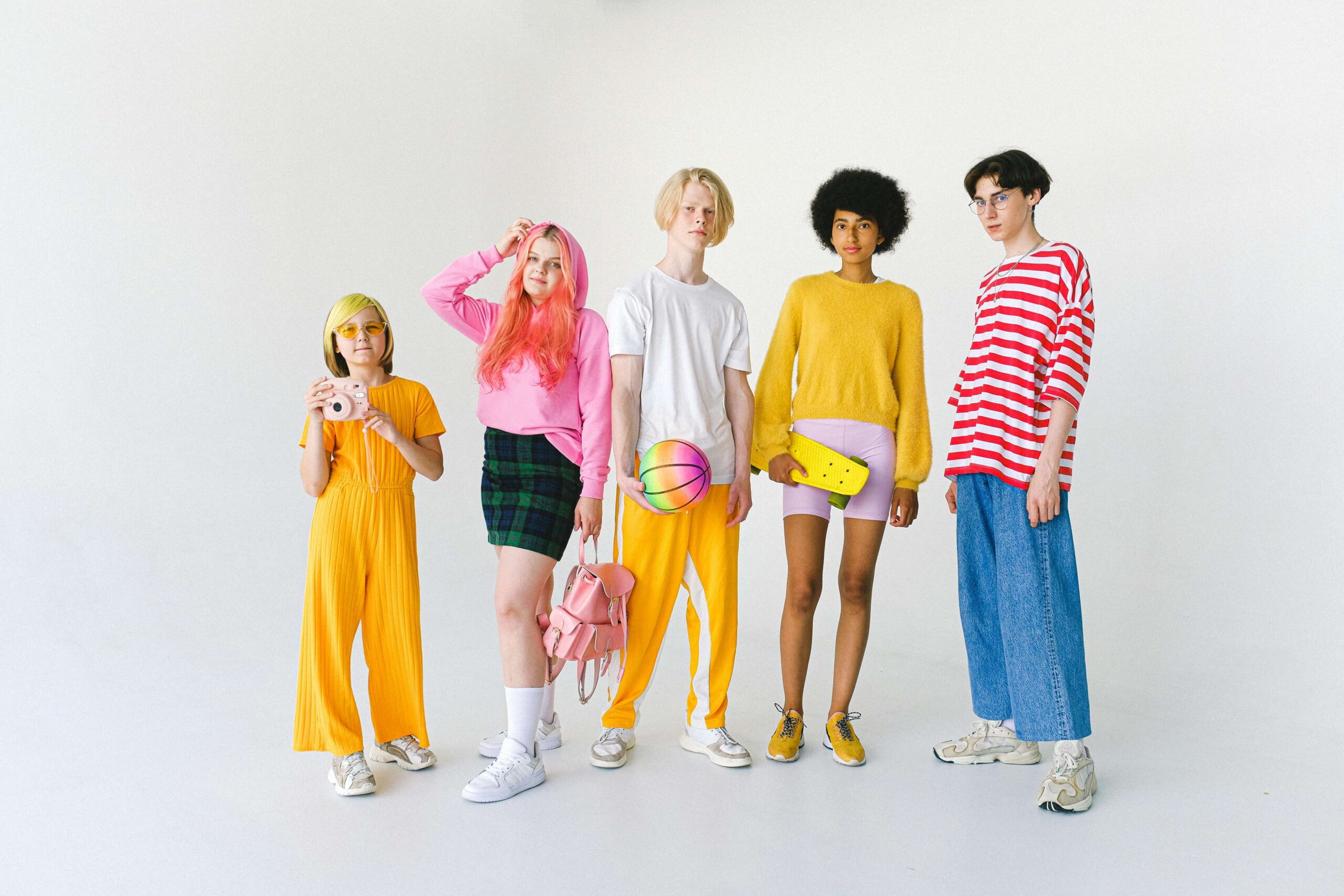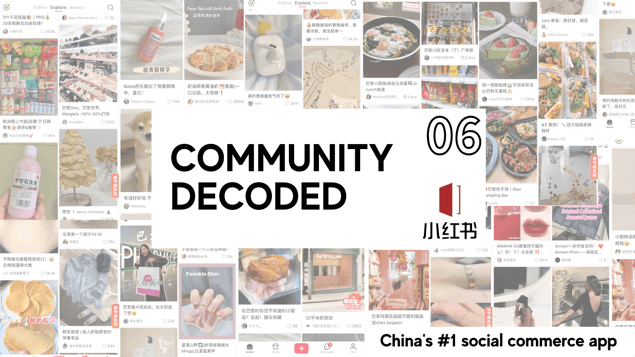
Little Red Book (or RED) is China’s biggest social commerce app, with over 6,000 brands selling on the platform (including many international brands).
Everything RED does fits its 3 C strategy: “Commerce, Content and Community”. To differentiate from its many competitors, they prioritize the social aspect of their app over commerce.
Unsurprisingly, their approach to UGC is one of the very best in the industry. So I was excited to dig into this one and find 5 tactics to share with you.
5 community tactics to learn from Little Red Book:
1. Building trust is the number one priority
2. Creative UGC drives the buying process
3. Motivating two types of content contributors
4. One seamless experience (both online & offline)
5. Moderating millions of UGCJump to the part you’re most interested in
New here? Check out previous episodes:
Glossier | Nike | Lululemon | Lego | OutdoorVoices
Building trust is the number one priority
Trust is a key factor of purchase for the Chinese. Yet, counterfeiting is so widespread there is a crisis of trust between consumers and brands. There’s a similar problem in the US/Europe: trust levels are only 29-52%, while it’s one of the top 5 factors of purchase for shoppers.
This is how RED builds trust:
- They’re all in on highly detailed reviews: no anonymous or one-click reviews
- Influencers specialize on a range of products/brands: it’s all about being legitimate
- Promo links or paid publications need to be disclosed
- External links are prohibited, limiting outbound traffic to stores RED cannot control
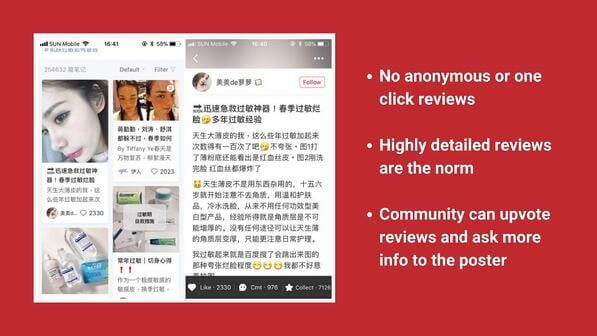
As a result, RED is China’s most trusted social shopping platform and the country’s number 1 cross-border e-commerce app.
Creative UGC drives the buying process
The success of RED has been largely built on UGC (much like Amazon and its reviews).
Mixing forum-style advice sections, detailed product reviews and content, RED is the place where shoppers go to explore, share and recommend.
Users create detailed content in multiple formats: text, photos, live streams, shopping notes, quick videos… The result is varied and creative UGC, all directly linked to the product page or brand store where you can make your purchase.
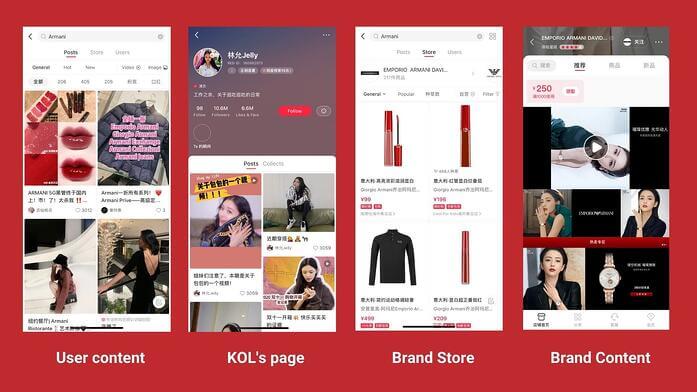
Brands can’t afford to be “opportunistic” about how they get UGC and where they use it.
The best places to use UGC:
- social media
- ads
- email marketing & newsletters
- across your website, especially on product pages
MORE: Get creative and shoppable UGC with TokyWoky’s community platform
Motivating two types of content contributors
- Key Opinion Leaders (KOLs)
KOLs are what we call influencers. They’re about 8,000 on the RED app, paid in commission by the brands or the platform itself. KOLs are selected based on the relevance of their tags and performance history.
Much like trust, authenticity is crucial. Photos and videos are very rarely retouched. The content is about the product, not the influencer. The best KOLs are realistic, accessible and reliable.
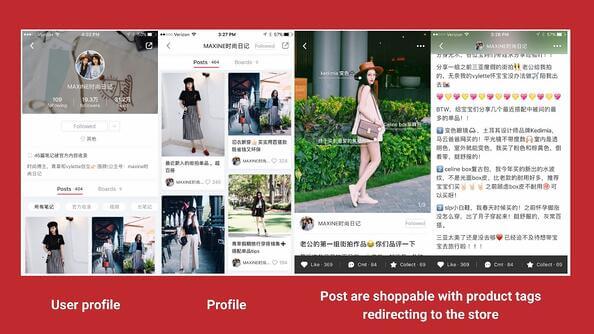
- Key Opinion Consumers (KOCs)
KOCs are micro-influencers. Smaller accounts are favored by the app’s algorithm and their posts appear more often in the main feed because engagement and conversion is higher (again, it’s all about trust and authenticity).
Even with a few hundred followers, a post can go “viral” and be seen my millions of potential customers. KOCs get rewarded for their product suggestions and advice. If they post regularly, get good engagement, they can quickly grow to KOL status.
One seamless online and offline experience
The app has 3 main sections:
- Follow: the contributors and brands you follow
- Explore: trending new content to explore
- Nearby: content based on your location that pushes users offline
RED has 5 physical stores called RED home. As the user accounts are connected, their shopping experience is hyper-customized, with interactive screens, virtual make-up devices, fitting mirrors and relooking tools.
It’s easy for shoppers to spot something on RED and try on it in store before buying. And just as easy to share something they’ve found instore with their community online.
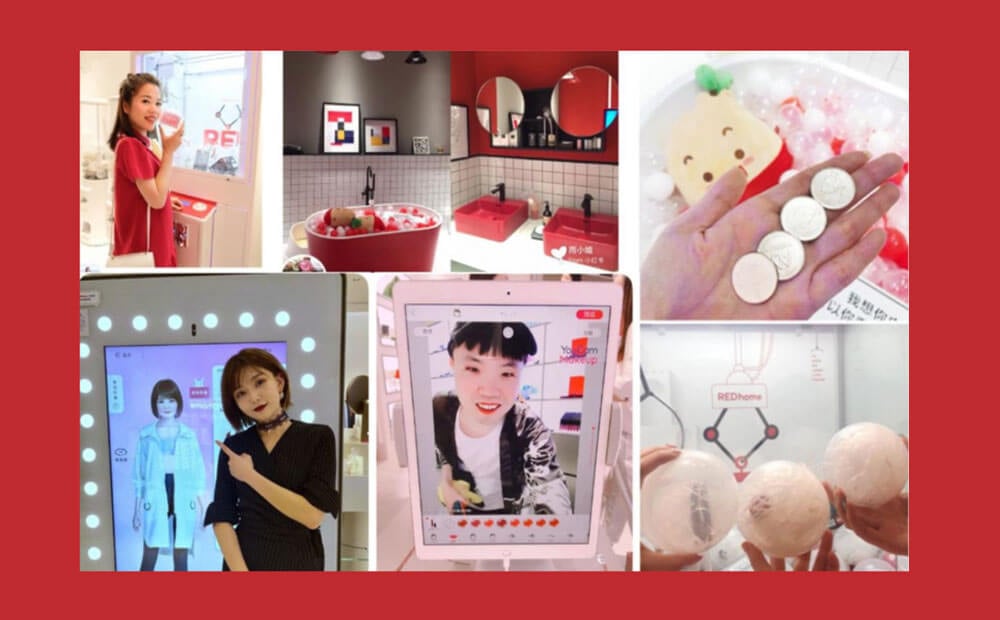
Moderating millions of UGC
Brands who aren’t investing in UGC cite 2 reasons:
- They’re unsure of the quality or how well it would fit their brand
- They don’t have the resources to screen and approve the UGCs
Here’s how RED handles moderation for millions of UGC per month:
- Automatic filters deleting self-promotion & verbal abuse
- No sharing option to avoid spam: content needs to organically find its way to the user
- Community actively self-moderates: popular content gets pushed into the feed, downvoted or reported content gets removed
- Ranking systems for KOLs and KOCs (based on their following, content relevancy, engagement) so brands can find the right content creators to collaborate with
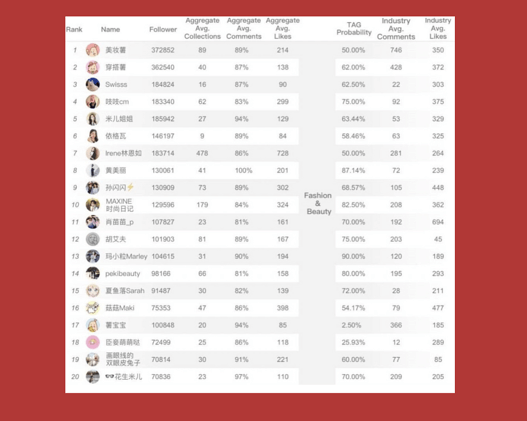
Top 20 fashion and beauty KOLs on Little Red book
Moderation tools checklist for your community:
With the right tools, your community can moderate itself and need fewer resources to run.
- Auto filters to block abuse and spam
- Report function for all users (auto block for a certain # of reports works well. Most communities auto-moderate this way)
- Advanced moderation tools for top members
- Concise community guidelines to make the rules clear for everyone
Thanks for reading! Tune in next month for a new episode.
Contact our team for your community project or keep reading:
















